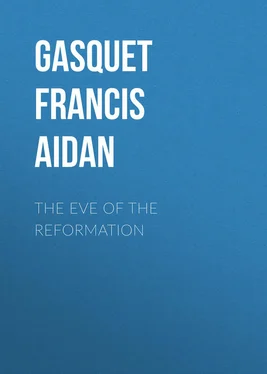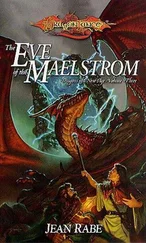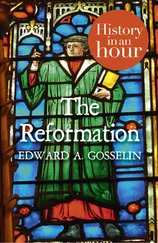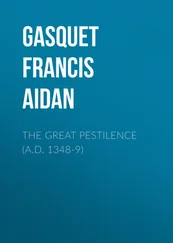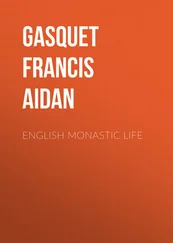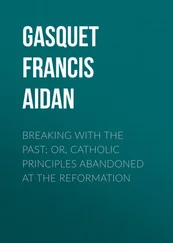Francis Gasquet - The Eve of the Reformation
Здесь есть возможность читать онлайн «Francis Gasquet - The Eve of the Reformation» — ознакомительный отрывок электронной книги совершенно бесплатно, а после прочтения отрывка купить полную версию. В некоторых случаях можно слушать аудио, скачать через торрент в формате fb2 и присутствует краткое содержание. Жанр: foreign_antique, foreign_prose, на английском языке. Описание произведения, (предисловие) а так же отзывы посетителей доступны на портале библиотеки ЛибКат.
- Название:The Eve of the Reformation
- Автор:
- Жанр:
- Год:неизвестен
- ISBN:нет данных
- Рейтинг книги:3 / 5. Голосов: 1
-
Избранное:Добавить в избранное
- Отзывы:
-
Ваша оценка:
- 60
- 1
- 2
- 3
- 4
- 5
The Eve of the Reformation: краткое содержание, описание и аннотация
Предлагаем к чтению аннотацию, описание, краткое содержание или предисловие (зависит от того, что написал сам автор книги «The Eve of the Reformation»). Если вы не нашли необходимую информацию о книге — напишите в комментариях, мы постараемся отыскать её.
The Eve of the Reformation — читать онлайн ознакомительный отрывок
Ниже представлен текст книги, разбитый по страницам. Система сохранения места последней прочитанной страницы, позволяет с удобством читать онлайн бесплатно книгу «The Eve of the Reformation», без необходимости каждый раз заново искать на чём Вы остановились. Поставьте закладку, и сможете в любой момент перейти на страницу, на которой закончили чтение.
Интервал:
Закладка:
It was in England, and almost entirely among the ecclesiastics of England, that Erasmus found his chief support. “This England of yours,” he writes to Colet in 1498, “this England, dear to me on many accounts, is above all most beloved because it abounds in what to me is the best of all, men deeply learned in letters.” 51 51 Erasmi Opera (ed. 1703), Col. 40.
Nor did he change his opinion on a closer acquaintance. In 1517, to Richard Pace he wrote from Louvain in regret at leaving a country which he had come to regard as the best hope of the literary revival: – “Oh, how truly happy is your land of England, the seat and stronghold of the best studies and the highest virtue! I congratulate you, my friend Pace, on having such a king, and I congratulate the king whose country is rendered illustrious by so many brilliant men of ability. On both scores I congratulate this England of yours, for though fortunate for many other reasons, on this score no other land can compete with it.” 52 52 Ibid., Ep. 241.
When William Latimer said in 1518 that Bishop Fisher wished to study Greek for Biblical purposes, and that he thought of trying to get a master from Italy, Erasmus, whilst applauding the bishop’s intention as likely to encourage younger men to take up the study, told Latimer that such men were not easy to find in Italy. “If I may openly say my mind,” he adds, “if I had Linacre, or Tunstall, for a master (for of yourself I say nothing), I would not wish for any Italian.” 53 53 Ibid., Ep. 363.
Not to go into more lengthy details, there is, it must be admitted, abundant evidence to show that there was in the religious houses of England, no less than in the universities, a stirring of the waters, and a readiness to profit by the real advance made in education and scholarship. The name of Prior Charnock, the friend of Colet and Erasmus at Oxford, is known to all. But there are others with even greater claim than he to be considered leaders in the movement. There is distinct evidence of scholarship at Reading, at Ramsey, at Glastonbury, and elsewhere. 54 54 To take one example, Thomas Millyng, who as Bishop of Hereford died in 1492, had studied at Gloucester Hall, Oxford, as a monk of Westminster. During the old age of Abbot Fleet, of Westminster, he governed the monastery, and became its abbot in 1465. He was noted for his love of studies, and especially for his knowledge of Greek. This, says the writer of his brief life in the National Biographical Dictionary , was “a rare accomplishment for monks in those days.” He might have added, and for any one else!
The last-named house, Glastonbury, was ruled by Abbot Bere, to whose criticism Erasmus desired to submit his translation of the New Testament from the Greek. Bere himself had passed some time, with distinction, in Italy, had been sent on more than one embassy by the king, and had been chosen by Henry VII. to invest the Duke of Urbino with the Order of the Garter, and to make the required oration on that occasion. 55 55 Dennistoun, Memorials of the Dukes of Urbino , iii., pp. 415 seqq.
He had given other evidence also of the way the new spirit that had been enkindled in Italy had entered into his soul. It was through Abbot Bere’s generosity that Richard Pace, whom Erasmus calls “the half of his soul,” was enabled to pursue his studies in Italy. 56 56 Erasmus to Abbot Bere. Opera , Ep. 700.
Glastonbury was apparently a soil well prepared for the seed-time, for even in the days of Abbot Bere’s predecessor, Abbot John Selwood, there is evidence to show that the religious were not altogether out of touch with the movement. The abbot himself presented one of the monks with a copy of John Free’s translation from the Greek of Synesius de laude Calvitii . The volume is written by an Italian scribe, and contains in the introductory matter a letter to the translator from Omnibonus Leonicensis, dated at Vicenza in 1461, as well as a preface or letter by Free to John Tiptoft, Earl of Worcester. 57 57 MS. Bodl. 80. It is the autograph copy of Free, cf. J. W. Williams, Somerset Mediæval Libraries , p. 87. It was Abbot Bere who, in 1506, presented John Claymond, the learned Greek scholar, to his first benefice of Westmonkton, in the county of Somerset. In 1516 Claymond became first President of Corpus Christi College, Oxford, often after signing himself, Eucharistiæ servus . Dr. Claymond procured for his college several Greek manuscripts which had belonged to Grocyn and Linacre, which are still possessed by it. At the end of MS. XXIII., which is a volume containing ninety homilies of St. John Chrysostom in Greek, is an inscription stating that this, and MS. XXIV., were copied in the years 1499 and 1500 by a Greek from Constantinople, named John Serbopylas, then living and working at Reading.
At St. Augustine’s, Canterbury, also, we find, even amid the ruins of its desolation, traces of the same spirit which pervaded the neighbouring cloister of Christchurch. The antiquary Twyne declares that he had been intimately acquainted with the last abbot, whom he knew to have been deeply interested in the literary movement. He describes his friend as often manifesting in conversation his interest in and knowledge of the ancient classical authors. He says that this monk was the personal friend of Ludovico Vives, and that he sent over the sea one of his subjects at St. Augustine’s, John Digon, whom he subsequently made prior of his monastery, to the schools of Louvain, in order that he might profit by the teaching of that celebrated Spanish humanist. 58 58 Ludovico Vives had been invited over to England by Cardinal Wolsey to lecture on rhetoric at Oxford. He lived at Corpus Christi College, then ruled by Dr. John Claymond, whom in his tract De conscribendis Epistolis he calls his “father.” The fame of this Spanish master of eloquence drew crowds to his lectures at the university, and amongst the audience Henry and Queen Katherine might sometimes be seen. For a time he acted also as tutor to the Princess Mary, and dedicated several works to the queen, to whose generosity he says he owed much. He took her side in the “divorce” question, and was thrown into prison for some weeks for expressing his views on the matter. Fisher, More, and Tunstall were his constant friends in England, and of Margaret Roper he writes, “from the time I first made her acquaintance I have loved her as a sister.” Among his pupils at Louvain, besides the above-named Canterbury monk, John Digon, he mentions with great affection Nicholas Wotton, whom the antiquary Twyne speaks of as returning to England with Digon and Jerome Ruffaldus, who calls Vives his “Jonathan,” and who subsequently became abbot of St. Vaast, Arras.
Beyond the foregoing particular instances of the real mind of English ecclesiastics towards the revival of studies, the official registers of the Universities of Oxford and Cambridge furnish us with evidence of the general attitude of approval adopted by the Church authorities in England. Unfortunately, gaps in the Register of Graduates at Oxford for the second half of the fifteenth century do not enable us to gauge the full extent of the revival, but there is sufficient evidence that the renaissance had taken place. In the eleven years, from A.D. 1449 to A.D. 1459, for which the entries exist, the average number of degrees taken by all students was 91.5. From 1506, when the registers begin again, to 1535, when the commencement of operations against the monastic houses seemed to indicate the advent of grave religious changes, the average number of yearly degrees granted was 127. In 1506 the number had risen to 216, and only in very few of the subsequent years had the average fallen below 100. From 108 in 1535, the number of graduates fell in 1536 to only 44; and the average for the subsequent years of the reign of Henry VIII. was less than 57. From 1548 to 1553, that is, during the reign of Edward VI., the average of graduates was barely 33, but it rose again, whilst Mary was on the throne, to 70.
Читать дальшеИнтервал:
Закладка:
Похожие книги на «The Eve of the Reformation»
Представляем Вашему вниманию похожие книги на «The Eve of the Reformation» списком для выбора. Мы отобрали схожую по названию и смыслу литературу в надежде предоставить читателям больше вариантов отыскать новые, интересные, ещё непрочитанные произведения.
Обсуждение, отзывы о книге «The Eve of the Reformation» и просто собственные мнения читателей. Оставьте ваши комментарии, напишите, что Вы думаете о произведении, его смысле или главных героях. Укажите что конкретно понравилось, а что нет, и почему Вы так считаете.
